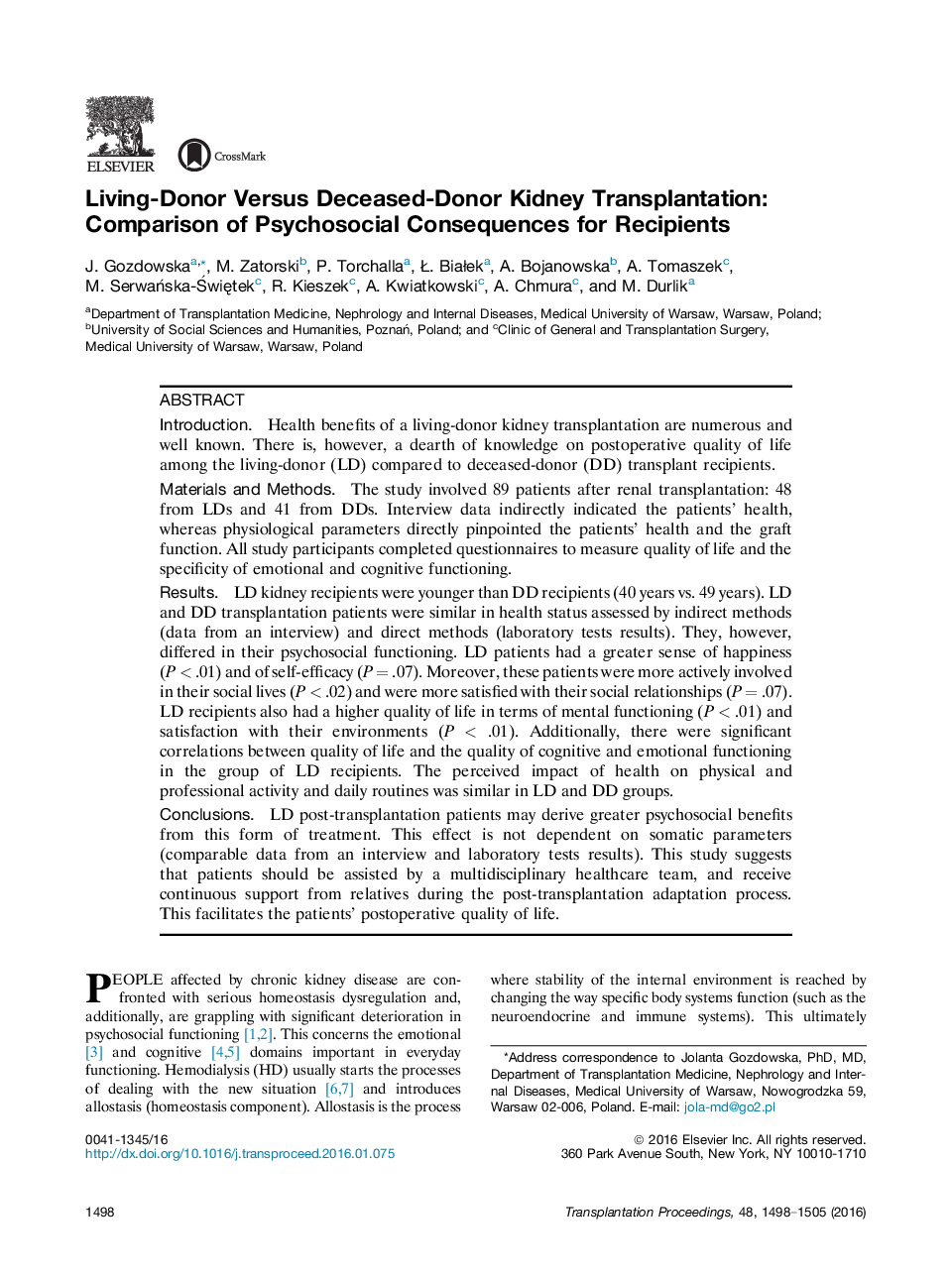| کد مقاله | کد نشریه | سال انتشار | مقاله انگلیسی | نسخه تمام متن |
|---|---|---|---|---|
| 4256061 | 1284510 | 2016 | 8 صفحه PDF | دانلود رایگان |
• No important differences in functioning of kidneys transplanted from living and deceased donors have been observed.
• Duration of an illness and dialysis do not influence a quality of life in LD patients group.
• LD post-transplant patients declare higher quality of life.
• The LD organ recipients have a greater sense of happiness and of self-efficacy.
• Result confirms the important role of social competences in the process of post-transplant adaptation.
IntroductionHealth benefits of a living-donor kidney transplantation are numerous and well known. There is, however, a dearth of knowledge on postoperative quality of life among the living-donor (LD) compared to deceased-donor (DD) transplant recipients.Materials and MethodsThe study involved 89 patients after renal transplantation: 48 from LDs and 41 from DDs. Interview data indirectly indicated the patients' health, whereas physiological parameters directly pinpointed the patients' health and the graft function. All study participants completed questionnaires to measure quality of life and the specificity of emotional and cognitive functioning.ResultsLD kidney recipients were younger than DD recipients (40 years vs. 49 years). LD and DD transplantation patients were similar in health status assessed by indirect methods (data from an interview) and direct methods (laboratory tests results). They, however, differed in their psychosocial functioning. LD patients had a greater sense of happiness (P < .01) and of self-efficacy (P = .07). Moreover, these patients were more actively involved in their social lives (P < .02) and were more satisfied with their social relationships (P = .07). LD recipients also had a higher quality of life in terms of mental functioning (P < .01) and satisfaction with their environments (P < .01). Additionally, there were significant correlations between quality of life and the quality of cognitive and emotional functioning in the group of LD recipients. The perceived impact of health on physical and professional activity and daily routines was similar in LD and DD groups.ConclusionsLD post-transplantation patients may derive greater psychosocial benefits from this form of treatment. This effect is not dependent on somatic parameters (comparable data from an interview and laboratory tests results). This study suggests that patients should be assisted by a multidisciplinary healthcare team, and receive continuous support from relatives during the post-transplantation adaptation process. This facilitates the patients' postoperative quality of life.
Journal: Transplantation Proceedings - Volume 48, Issue 5, June 2016, Pages 1498–1505
